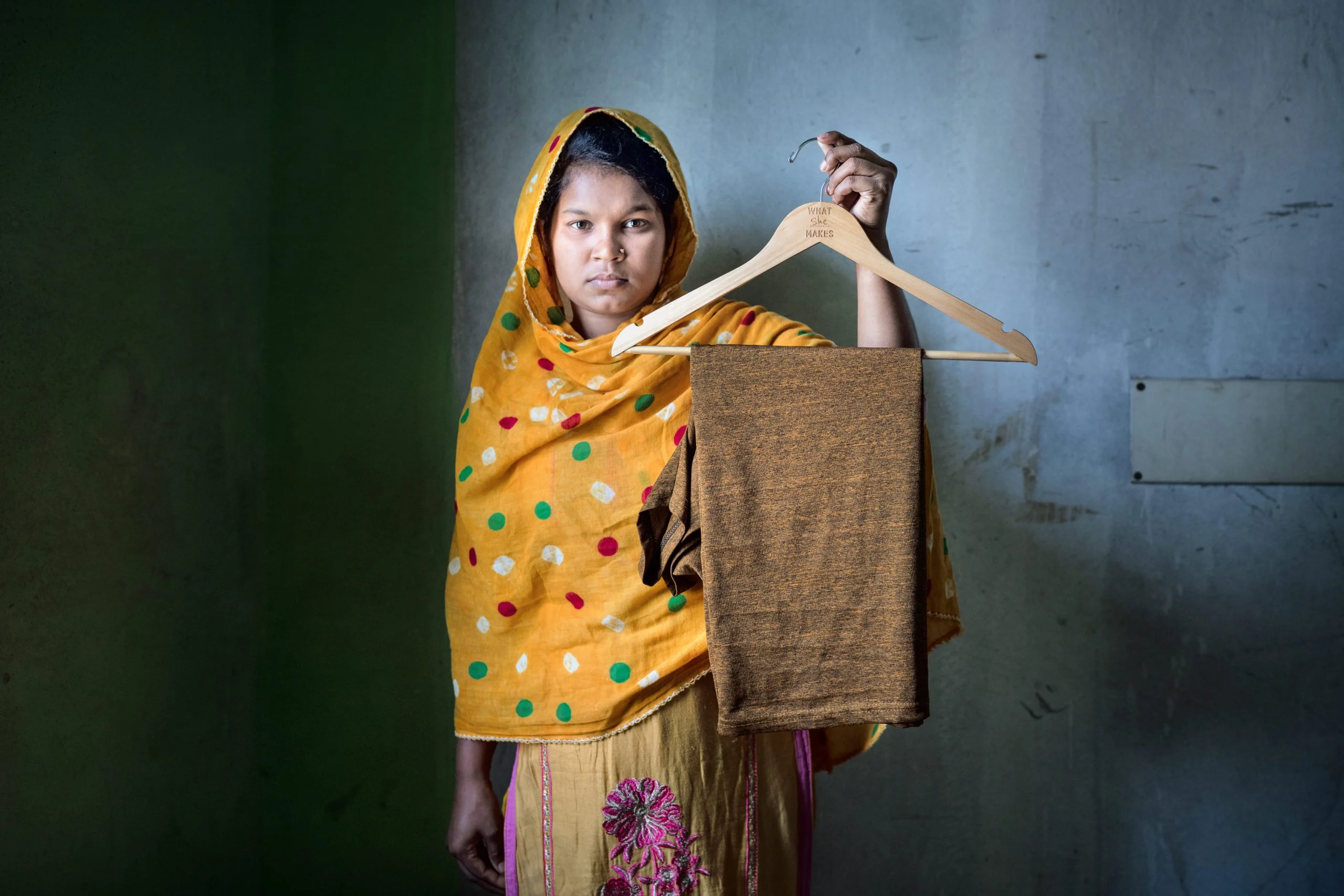Workers’ rights
We’re tackling poverty in the fashion industry.
Read our reports:
Made in Poverty: The True Price of Fashion (2019) — Full Report or Summary
What She Makes: Power and Poverty in the Fashion Industry (2017) — Full Report
Fast fashion has utterly changed the industry. With new trends coming out every week, the fast fashion industry urges consumers to buy as many garments as possible, as quickly as possible. The constant inflow of low-cost, low-quality garments means we are buying and disposing of more clothing than ever. This has a real effect on the women working in the ready-made garment industry, with huge pressure to deliver on orders.
Fashion is a booming industry, turning over billions of dollars every year.
Despite this, the women who make our clothes do not make enough to live on, keeping them in poverty. Despite long hours away from their families, working full time plus hours of overtime, big brands do not pay them enough money to cover the basics of life – food and shelter.
Rumi works in a garment factory, matching the back and front parts of T-shirts.
Rumi completed her high school education, but was unable to pursue further studies due to a family crisis that forced her to move to the city and support her family at the age of 17.
Rumi’s two younger sisters now live with her and she bears the cost of their educational expenses. But on her low wage, she’s finding it impossible.
Australian clothing brands are part of the system that has created this injustice. Big brands allow poverty wages so the women who make our clothes aren’t paid enough money to live on.
It is now time for brands to publicly commit to paying living wages and we ask the brands to develop credible, transparent, time-bound plans to map out how they will achieve this goal.
A living wage is not a luxury or a privilege; it is a universal human right — for every working person around the world, including the women who make our clothes.
We all buy clothes and so we stand together with the women who make our clothes demanding to know #whatshemakes.
